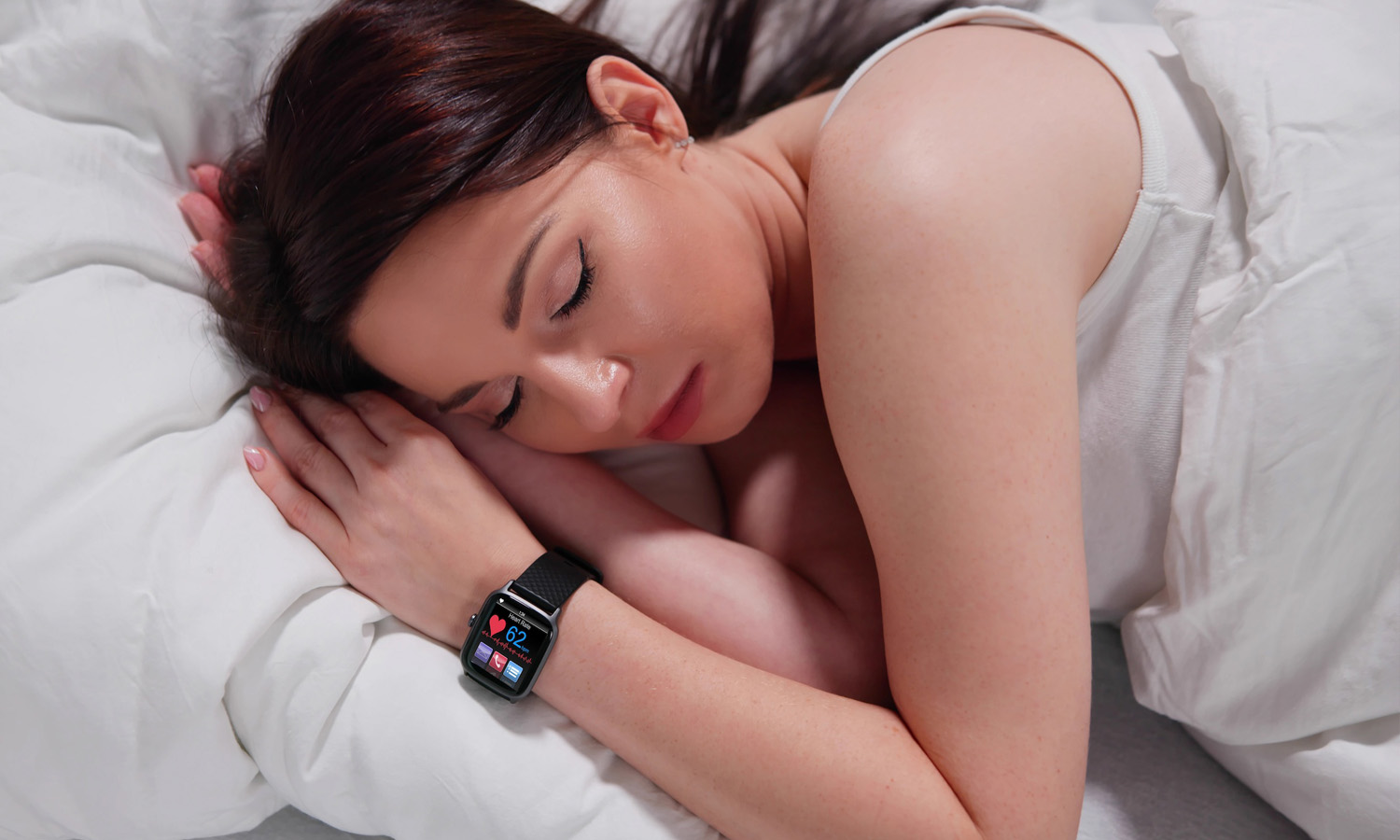
We’ve all spent the occasional restless night tossing and turning, kicking covers, and scrunching pillows in a desperate attempt to sleep. Our nightly rest is such an essential part of life that we hardly notice it until we suffer from a sleep disorder. According to the Cleveland Clinic, these are the most common sleep disorders:
- Insomnia—having difficulty falling and staying asleep.
- Breathing disorders—including snoring and sleep apnea.
- Hypersomnolence—sleepiness through the day.
- Circadian rhythm disorders—internal clock doesn’t match the real clock.
- Parasomnias—sleepwalking, talking, or eating.
- Movement disorders—uncontrollable movements during sleep.
Some sleep disorders are a result of one’s individual lifestyle—such as working the night shift—while others are related to physical characteristics such as weight and sleep apnea. Each of these disorders can contribute to chronic physical conditions like obesity, high blood-pressure, and diabetes. The lack of sleep can also impact cognitive function.
Sleep is intricately connected to overall health, yet 50-million Americans have a sleep disorder and over 100 million report sleeping less than the recommended 7 to 9 hours recommended by the Mayo Clinic. The National Council on Aging notes that 30% of Americans experience some form of insomnia. Here are some informational resources on the importance of sleep and tools to achieve a more restorative rest.
Books
There are many books on the health benefits of sleep, the harm of sleep disorders, and how to sleep better. You might even try reading the following titles in bed as one study indicates reading results in a better night’s sleep.
“Why We Sleep: Unlocking the Power of Sleep and Dreams” by Matthew Walker
The Sleep Foundation offers a list of their favorite books. This title made the list for its mix of science and accessible writing.
“The Sleep Revolution: Transforming Your Life, One Night at a Time” by Arianna Huffington
Arianna Huffington, of The Huffington Post fame (now HuffPost), explores the problem of sleep deprivation and proposes methods to change your relationship with sleep.
“Mindfulness for Insomnia: A Four-Week Guided Program to Relax Your Body, Calm Your Mind, and Get the Sleep You Need” by Catherine Polan Orzech and William H. Moorcroft
In 2023, the New York Times put together a list of sleep-related titles based on the recommendations of clinicians and researchers. This book made the list for its self-help tactics to improve mindfulness.
“Sharing the Covers: Every Couple’s Guide to Better Sleep” by Dr. Wendy M. Troxel
This book looks at the impact sleep disorders can have on relationships.
“The Power of When” by Michael Breus, PhD
This book takes a deep dive into our natural circadian rhythms and offers tips on fine-tuning your individual rhythm for better sleep and better health.
“The Promise of Sleep: A Pioneer in Sleep Medicine Explores the Vital Connection Between Health, Happiness, and a Good Night’s Sleep” by Dr. William C. Dement
This classic book on the subject of sleep, published in 1999, provides a research-supported portrait of the relationship between sleep and physical health.
“Hello Sleep: The Science and Art of Overcoming Insomnia Without Medications” by Jade Wu
This book, written by a behavioral sleep medicine specialist at Duke University School of Medicine, offers tips for situational sleep disorders, be it pregnancy, menopause, or depression.
“When Brains Dream: Exploring the Science and Mystery of Sleep” by Antonio Zadra and Robert Stickgold
This book explores the science of dreaming and how sleep is essential to cognitive function.
Applications
There are plenty of apps to help you sleep, ranging from meditation aides to sleep assessment tools. Most apps are free but charge a subscription for added features. Some offer free 7-day trials.
ShutEye
This app made CNN’s list of best sleeping aides. It offers a variety of sleep sounds, stories, and relaxing music, all designed to alleviate stress. The built-in sleep tracker helps you to gain insights into your sleep cycle and snoring habits.
BetterSleep
This app made Forbes recommended list for its relaxing sounds and music in specific audio ranges to quiet your over-active mind. It also has a sleep tracker.
Calm
The Sleep Foundation rated this app as their best overall recommendation. Options include music, calming noise, and stories read by celebrities.
SnoreLab
This is a popular sleep recording app that will monitor your sleep and record episodes of snoring. You can try different snoring remedies and see which are the most effective.
Sleep Cycle
This tracking app also made Forbes’ list. It will study your sleep habits through the night and the collected data can be integrated into an Apple Health or Google Fit device.
Circadia Track
This app rated highly in a 2022 study published by Sleep Science. In addition to tracking sleep factors, the app has a diary function so users can add their own observations.
Wearables
If a bedside tracker isn’t enough for you, there are wearable options that claim to record even more sleep data.
Muse S headband
The Sleep Foundation rated this device their best wearable tracker. The headband device and companion app will record brain activity through the night for a more precise record of your sleep habits, including REM stages. The app also tracks heart rate, breathing, and movements.
Oura Ring
It may take some time to become accustomed to wearing a device at night, but you’re unlikely to notice the Oura Ring. The ring is equipped with hospital-grade sensors to track heart rate, respiration, body temperature, sleep stages, and movement.
Ultrahuman Ring
This ring records similar data as the Oura device, but does not require a subscription to its companion app.
Garmin, Apple Watch, Google Pixel
You may already have a fitness tracker for your waking hours and can put the same device to use as you sleep. Garmin devices with a pulse oximeter sensor come with advanced sleep monitoring functions. The Apple Watch Series 4 or later can be used to track sleep, as can a Google Pixel Watch 2 through the Fitbit app.
If you have any questions or concerns about your sleep health, discuss them with your Kinwell clinician. Schedule an appointment through your MyChart app or by calling 833-411-5469.
This content is for informational purposes only and does not constitute medical advice or an endorsement.


